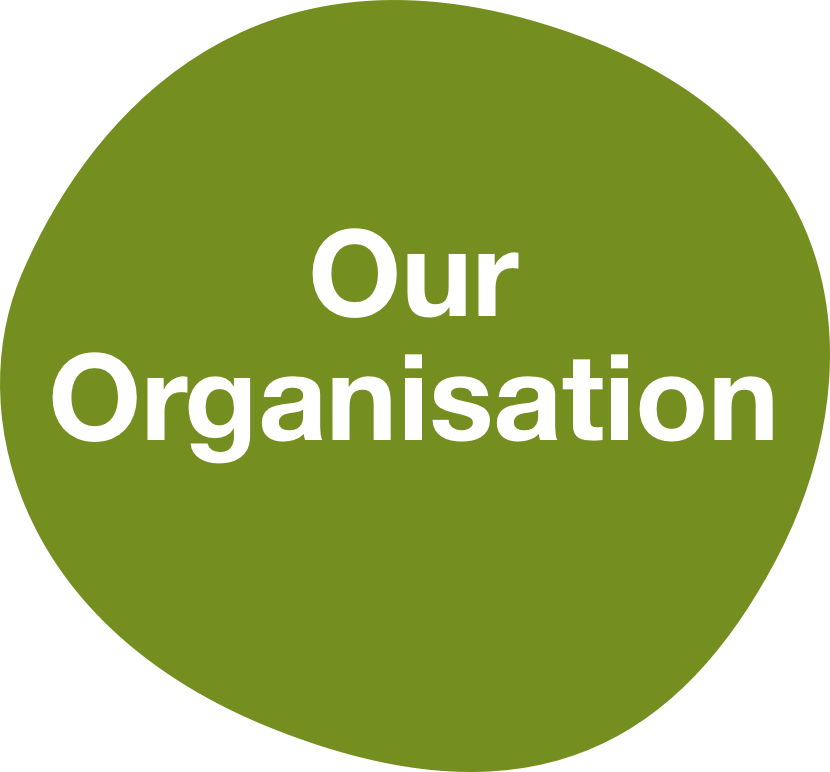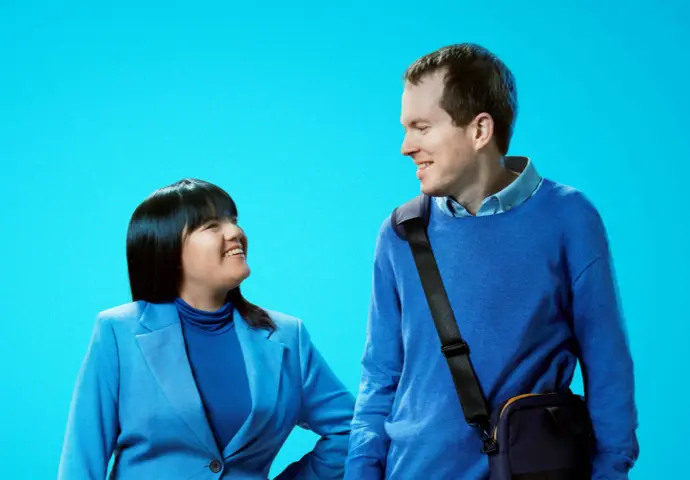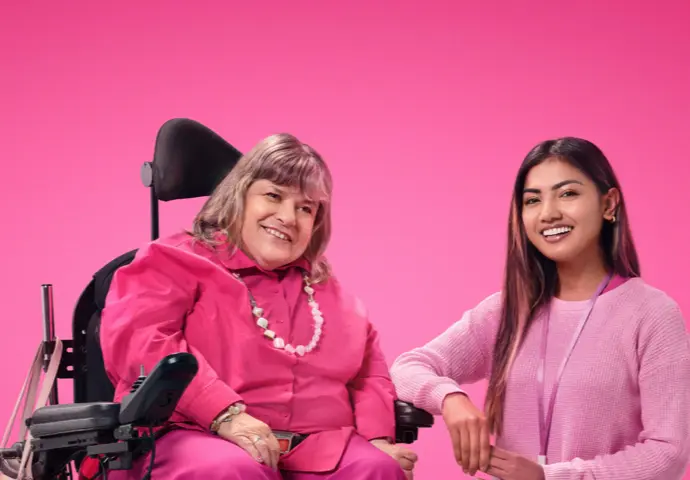More than 75 years of supporting people with disability to belong and thrive
Scope’s story: A stroll down memory lane
*Please note this content contains records, images, voices or names of deceased First Nations’ people in photographs, film, audio recordings or print materials.
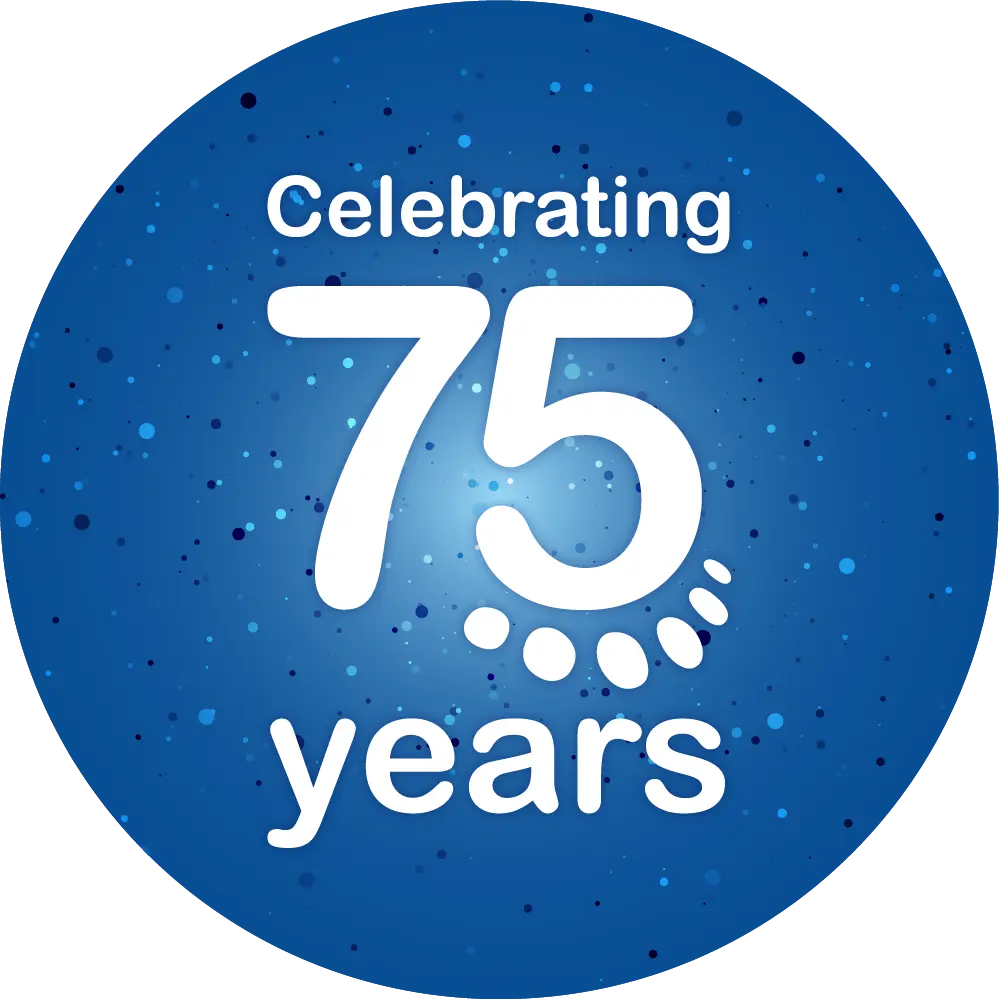
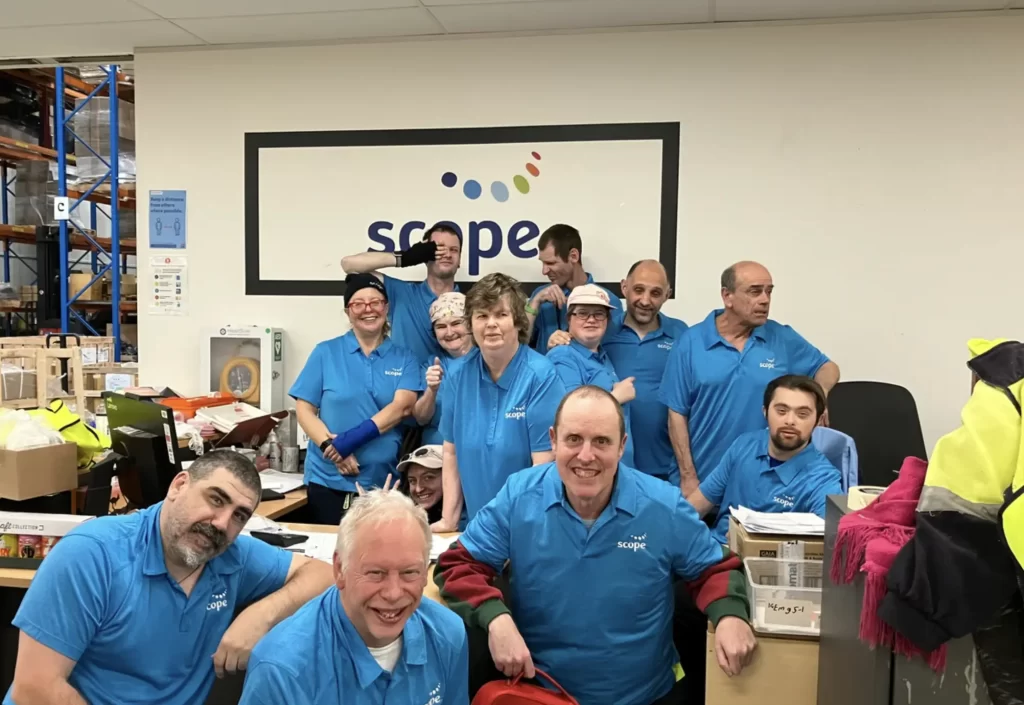
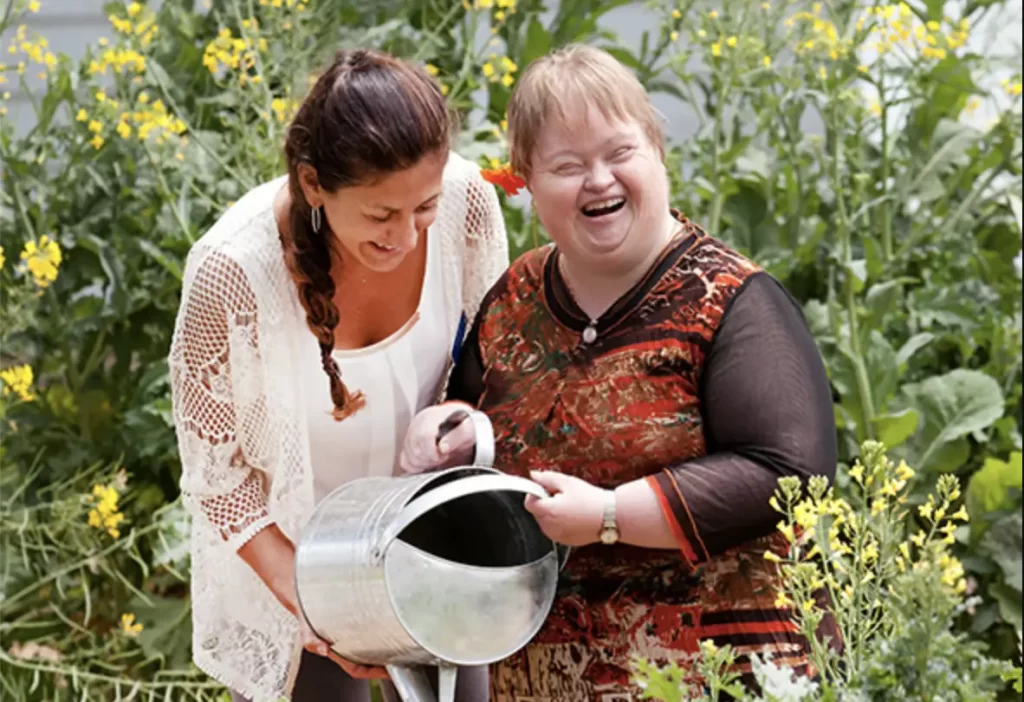
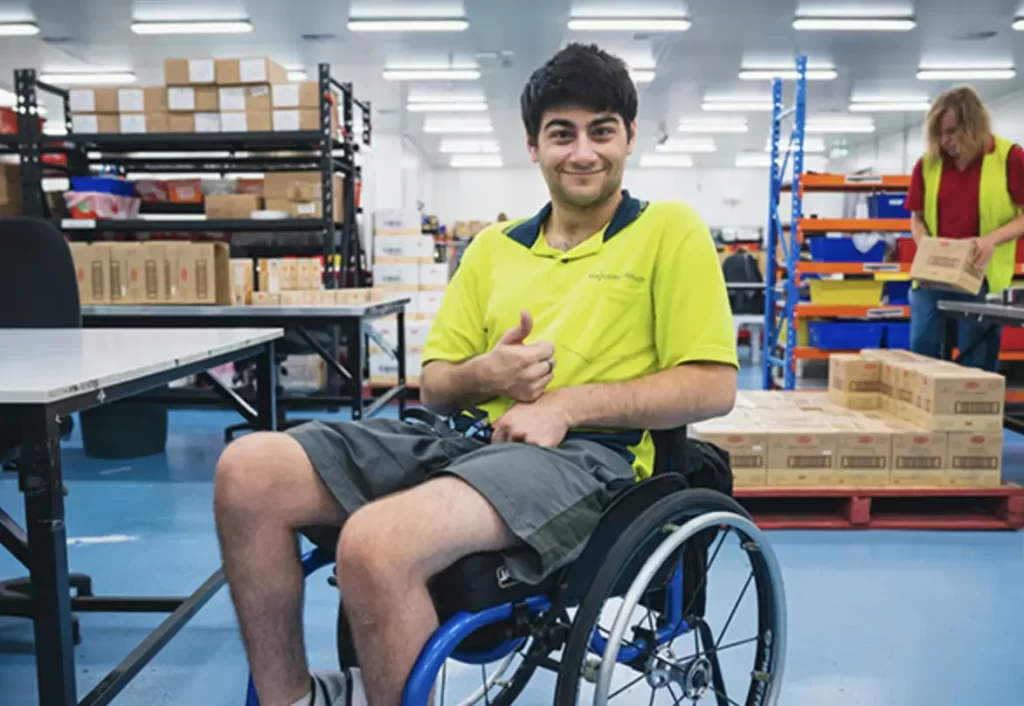
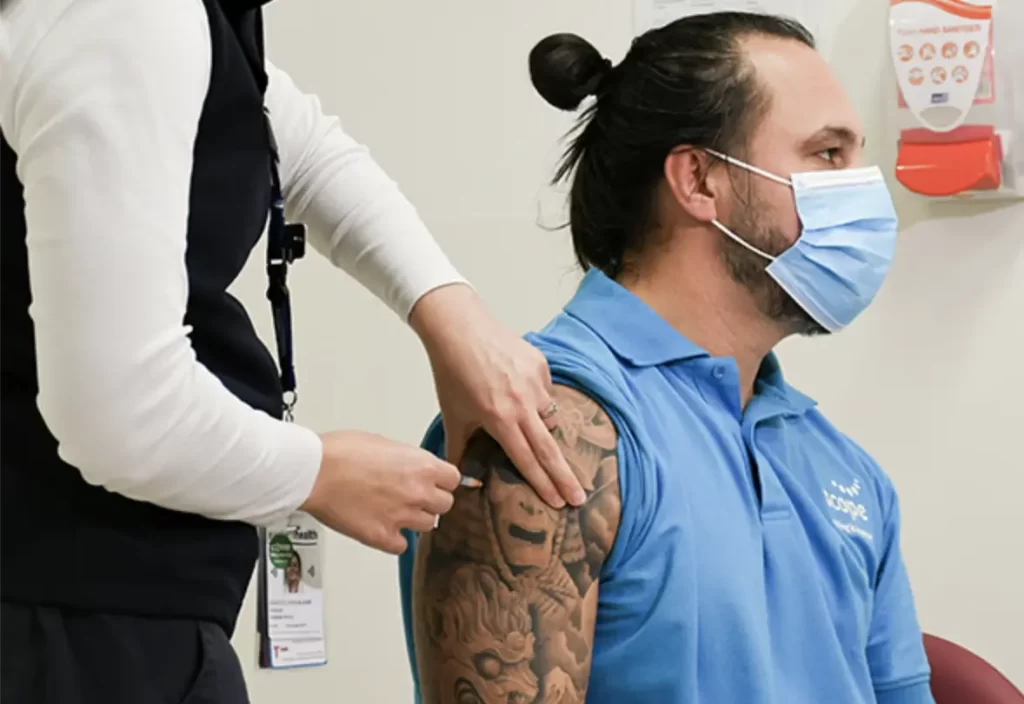
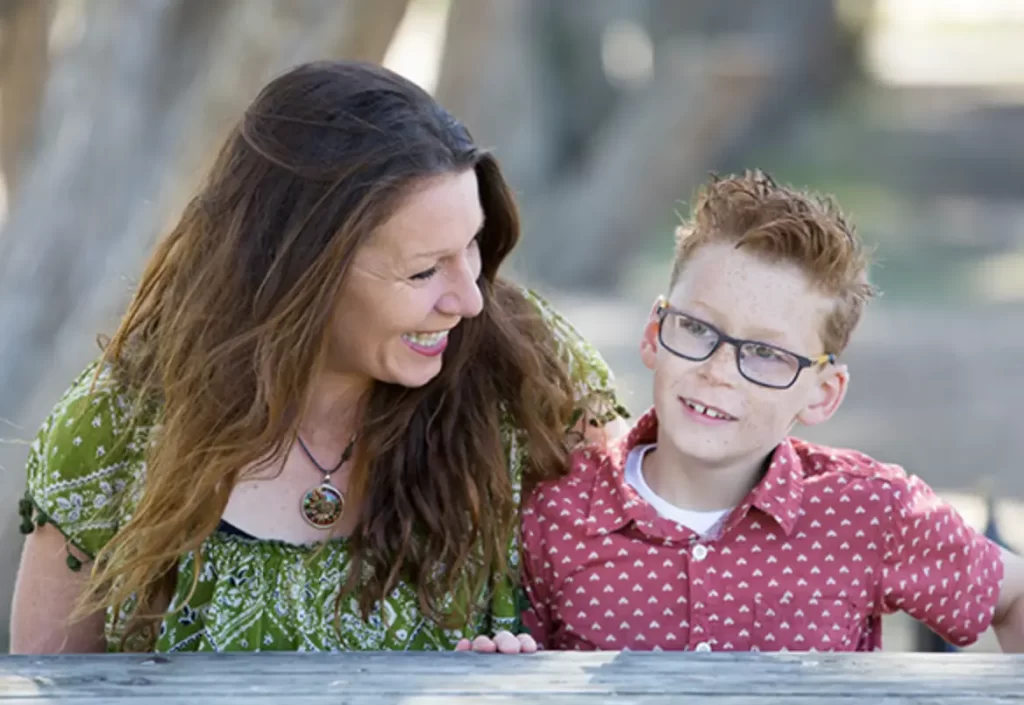
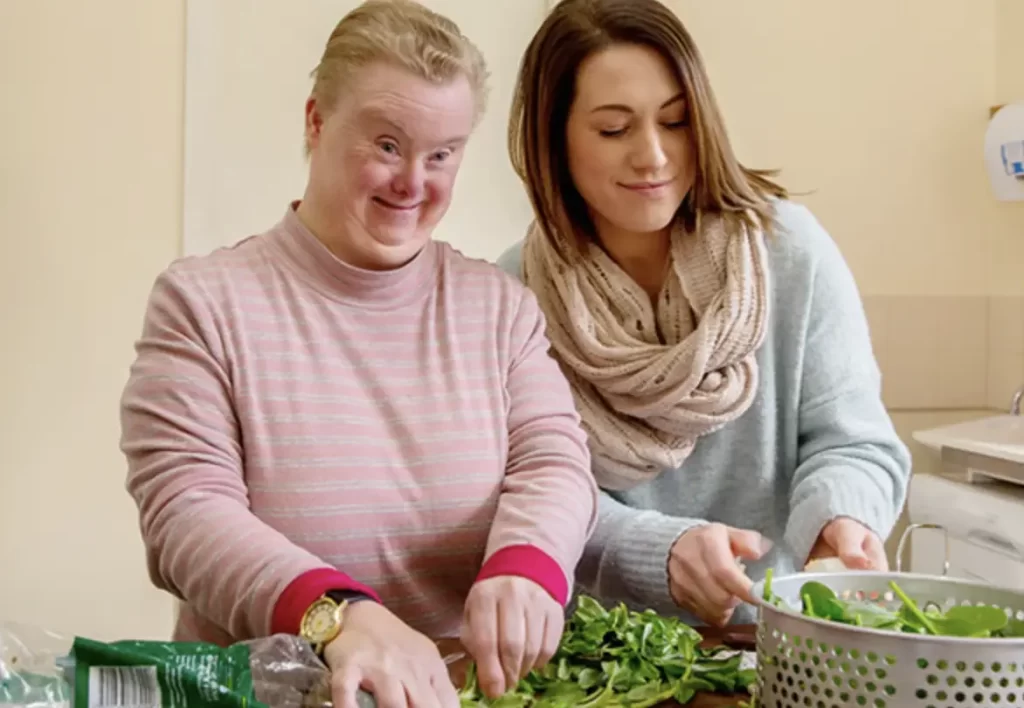
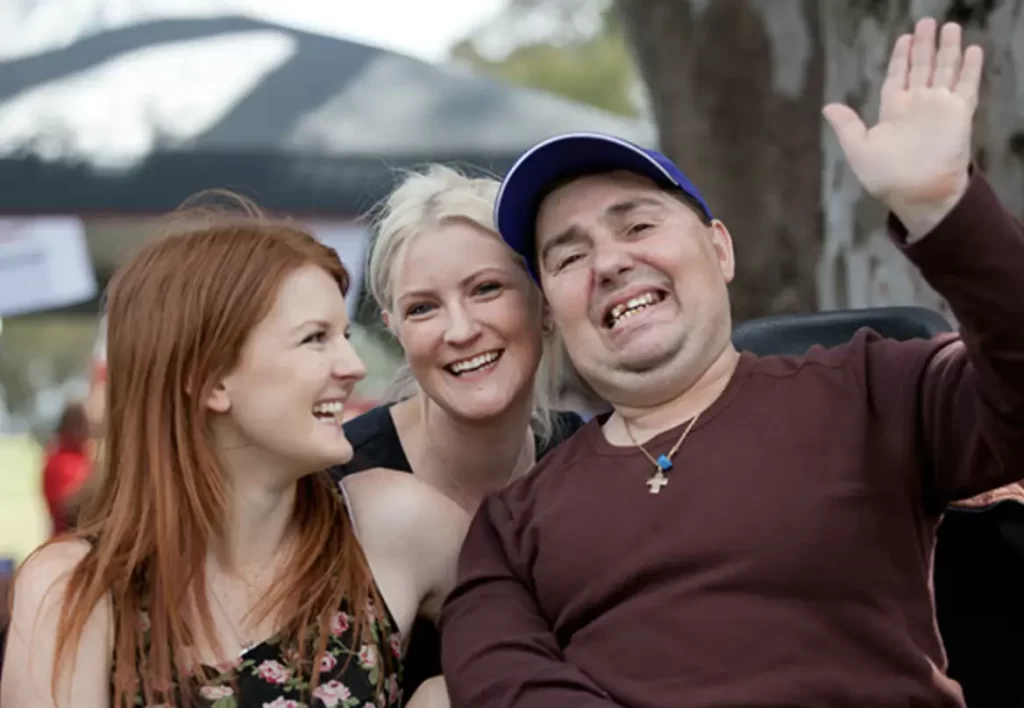
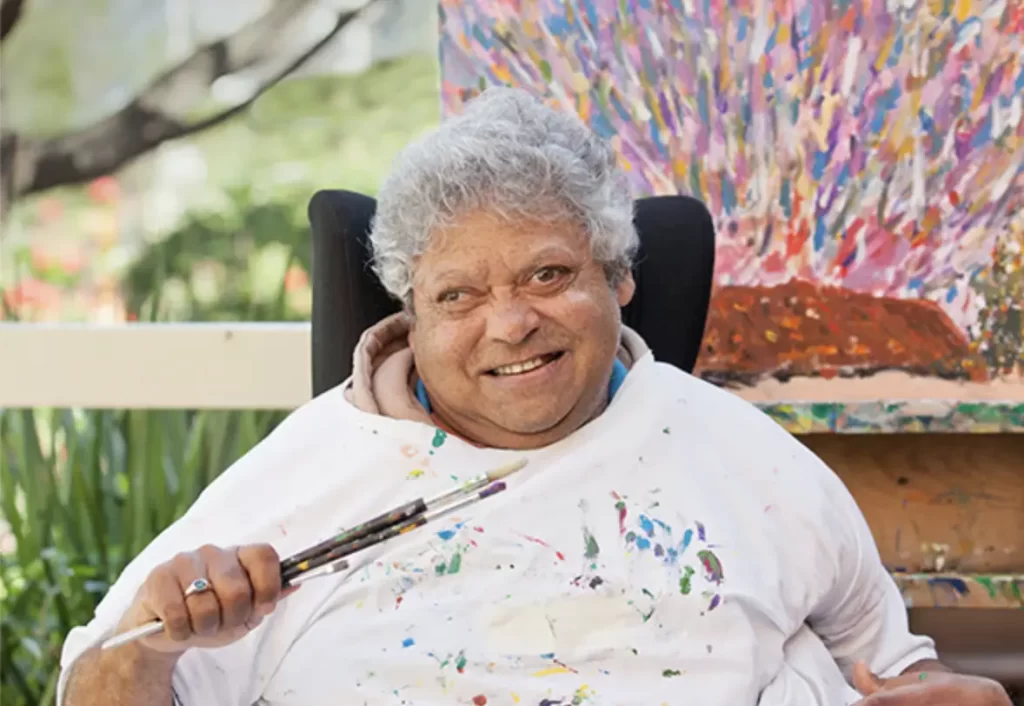
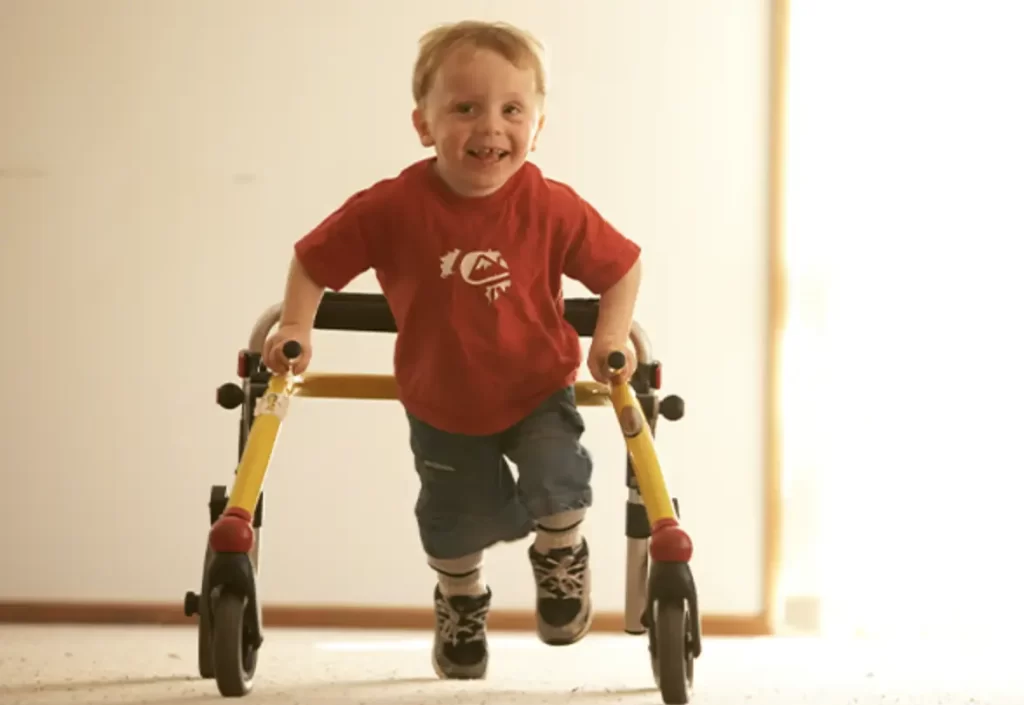
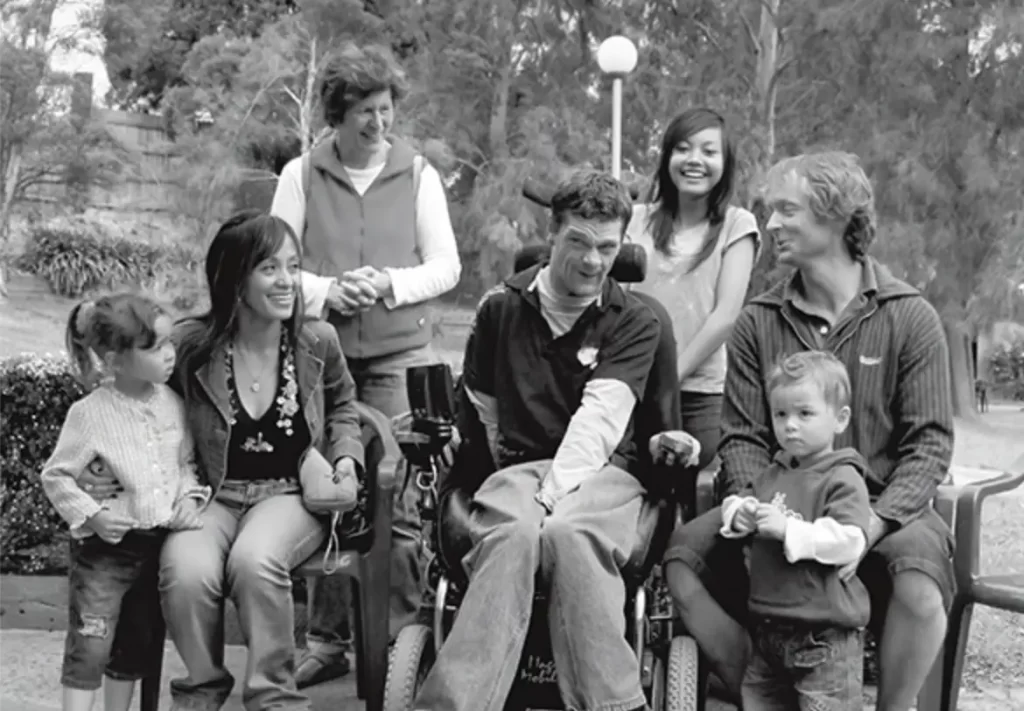
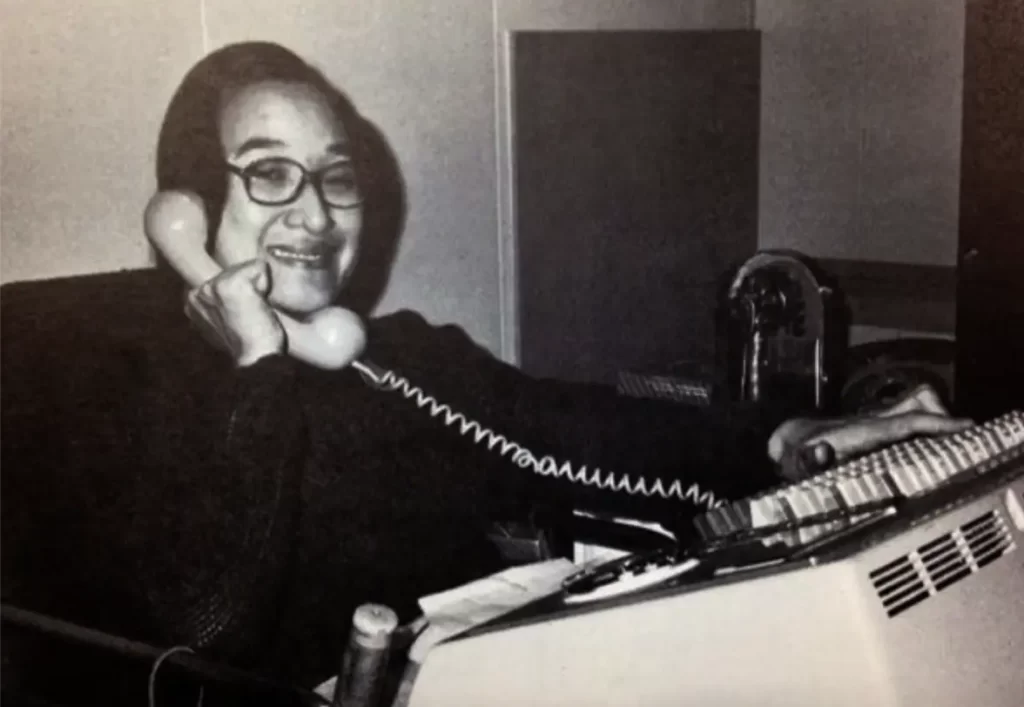
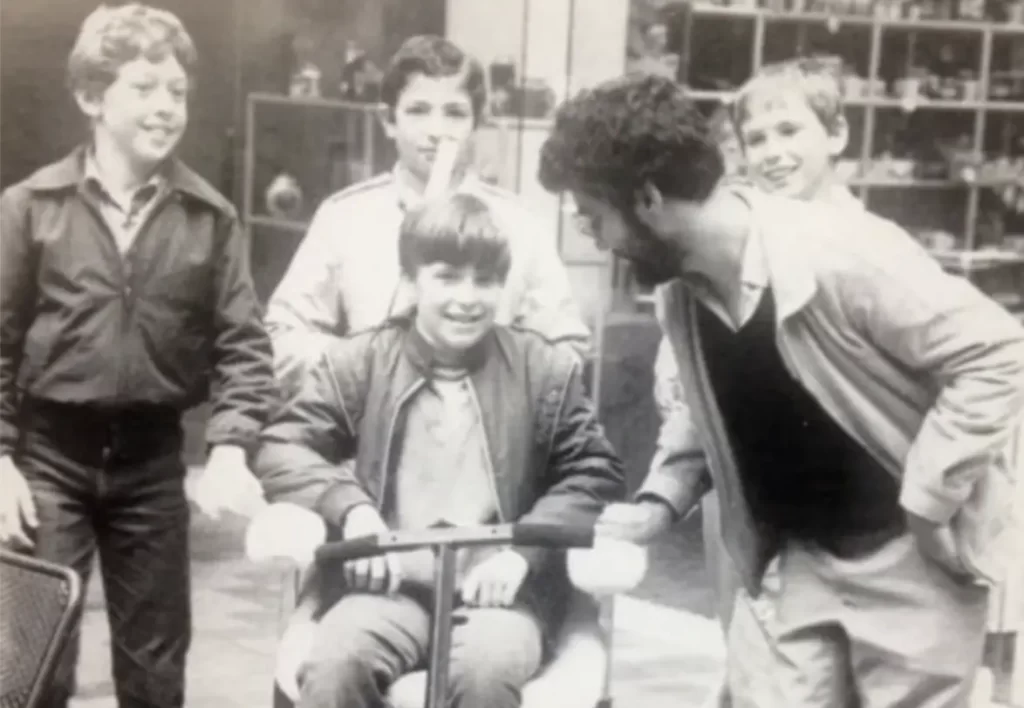
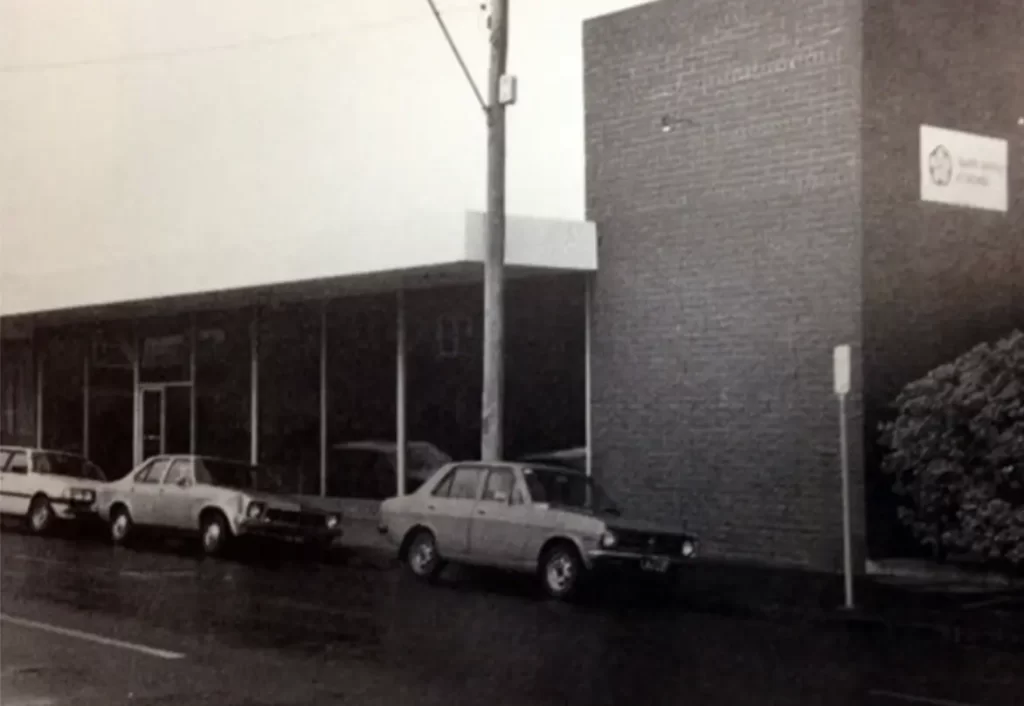
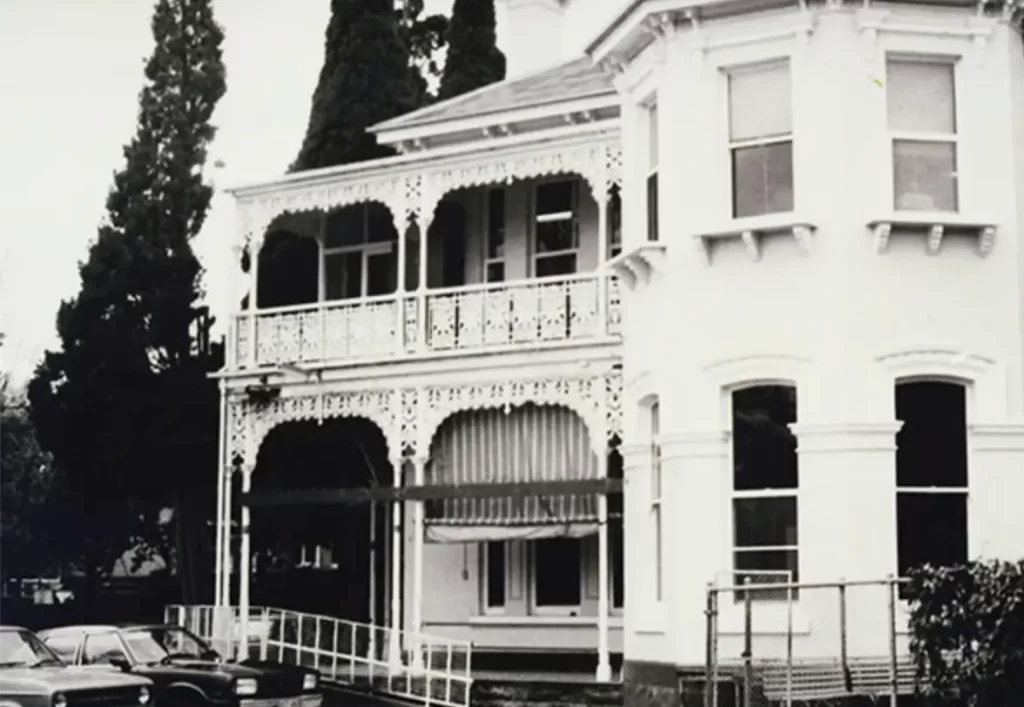
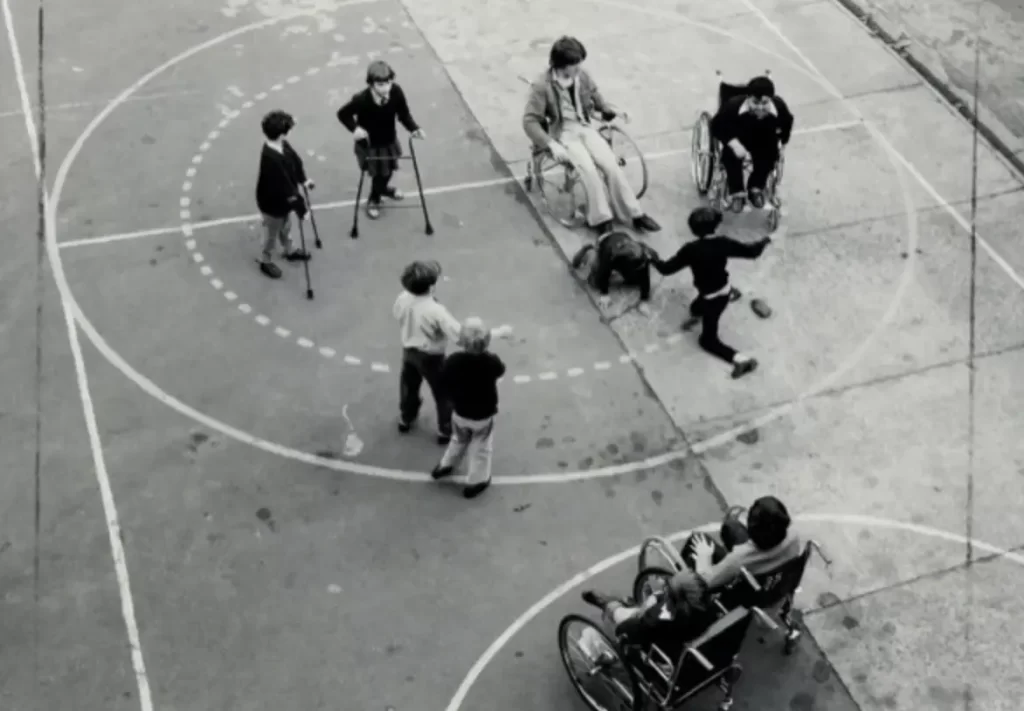
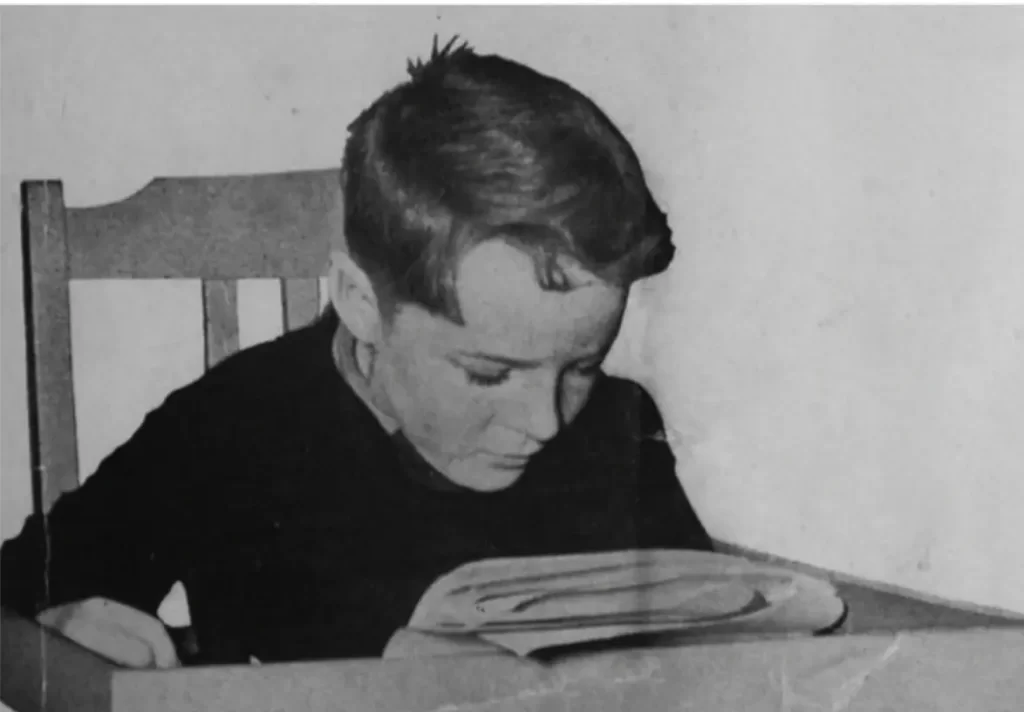
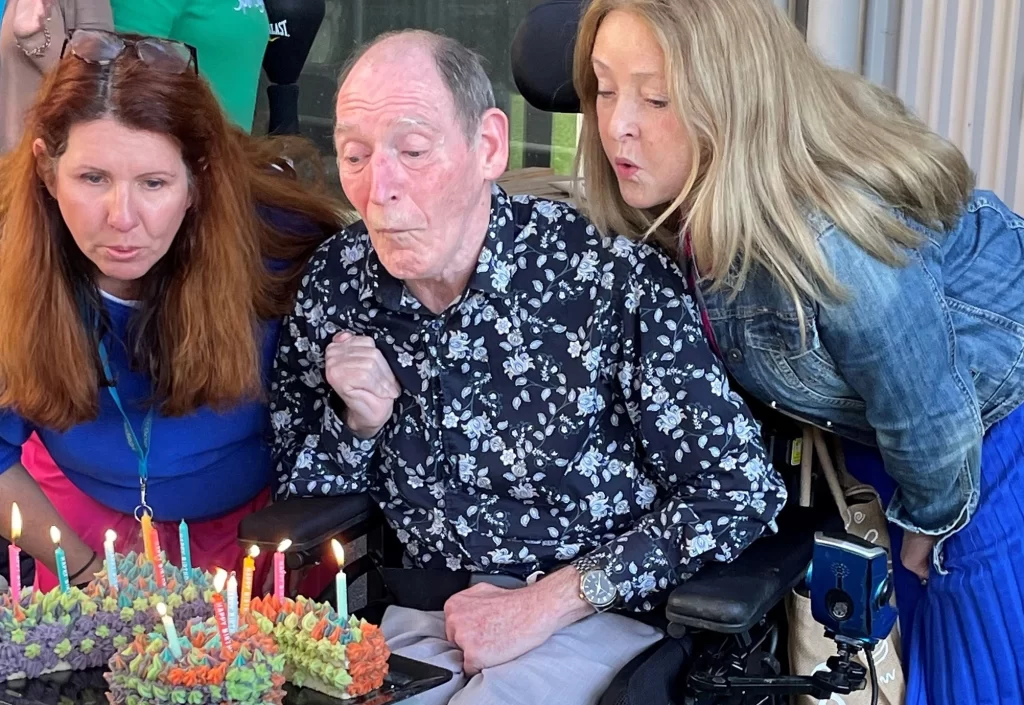
In August 2023, Scope marked its 75th birthday, complete with events and celebrations across the organisation.
An important part was remembering what life was like for our founding families and first clients all those years ago.
From our first days in 1949, when courageous and determined parents demanded something very different for their children than was common practice at that time. we’ve grown to become one of Australia’s largest service providers.
Scope’s history highlights our dedication to creating a world where everyone can belong and thrive. We continue to stand proudly with our founding families who were powerful advocates for the rights of their children.
Through our rich journey, Scope has touched the lives of countless individuals and families, leaving an indelible mark to this day on Australia’s disability services sector.
As is our vision, we will continue to pave the way for a more inclusive society through our influence and drive to keep delivering positive change for people with disability by empowering our clients to live their dreams.
Timeline of Scope’s growth
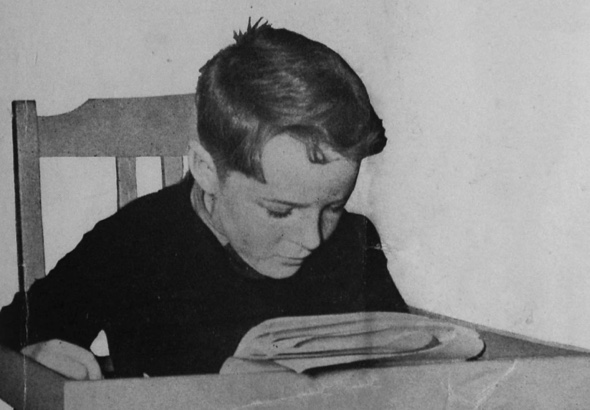
The Spastic Children’s Society of Victoria is established
In 1948, the idea to form a society was discussed by a group of parents desperate at the lack of support for their children with cerebral palsy. These families banded together to create an organisation that provided support for their children, known as the Spastic Children’s Society of Victoria.
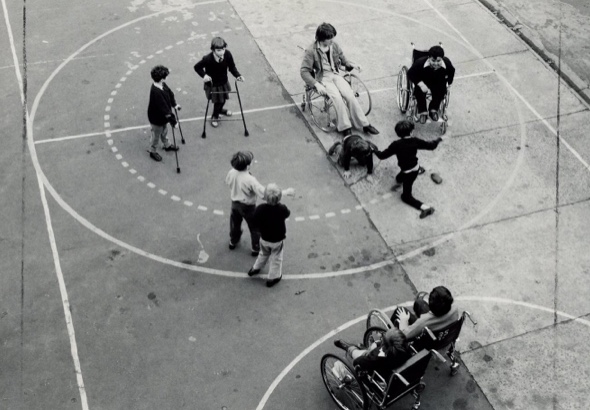
Marathon is established
A year after forming, the Marathon school was established, which focused on education and helped students build independence in a community environment.
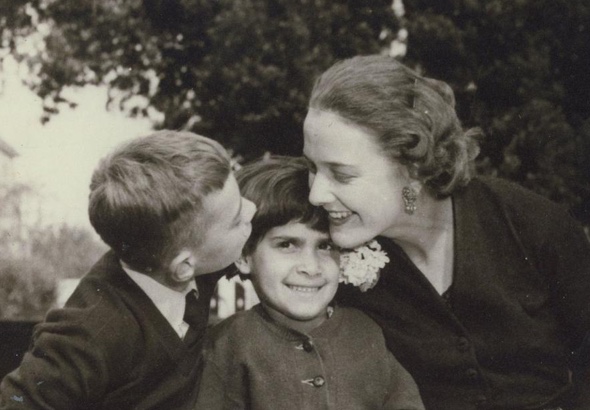
By 1950, 56 children attending Marathon five days a week
One student, Evelyn Brush, began receiving services from the Society when she was in primary school at Marathon: “We used to have lunch and play outside on the monkey bars; the teachers also used to pass us all out the window because it was fun and quicker than going the long way outside. One teacher would stay inside and one would go outside and they would pass all the children out the window to play outside; I liked that.” – Evelyn Brush

500 adults and children accessing our services
“We had sports periods every Friday. A group of us used to play football – and it wasn’t a matter of just playing out the back! We travelled by bus to the local oval. We’d play this serious game of footy with minor changes to the rules… If kids in normal schools still play footy, so would we!” – Anthony Nichols (Marathon student and former Scope employee)
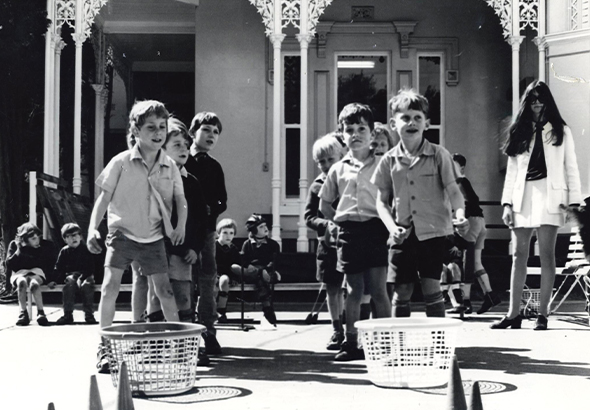
More than 1000 children with a disability are being supported; cyclone newsletter is first circulated
Cyclone was first published in the mid-seventies; it was a newsletter for people with a disability and their parents, with the topics that mattered to people with disabilities, like employment, health and fitness, and accommodation.

Marathon closes its doors
Joanne Van Den Eynden, a former student of Marathon, wrote of her indebtedness to staff there and her fond memories of Marathon: “I have never since felt the atmosphere that was there. There was a total team spirit! People were helping and working together for the same goal.”

The Spastic Society of Victoria
In 1980, the organisation became the Spastic Society of Victoria and launched the following philosophy: ‘Each person has an inherent right to participate in life’s opportunities. Disabled people have special needs which, when left unmet, limit the individual's opportunities to develop his or her maximum potential.

International Year of Disabled Persons
The year had a profound effect on raising awareness of disability in Australia, placing it firmly on the human services agenda. New philosophies such as normalisation and de-institutionalisation were spreading in influence. Accommodation was one of the biggest areas for growth during the eighties with a significant move away from being facility-based to becoming a home.

The Disability Discrimination Act
In 1992, the Disability Discrimination Act was introduced to eliminate discrimination against people on the grounds of disability in areas like employment, accommodation, and leisure. Local high schools started to participate in “experience programs” that saw groups of students from mainstream schools assist with lunch and other programs. One year, the visiting high school students put on a play – Emmy, a coordinator of the program, says, “One of our students held her head up for two hours during the play, which she normally had to be supported to do. Our student had something to look at. She had a purpose.”

Horizon newsletter is first circulated
The name Horizon came from a competition ran in December 1993, when the first issue, "What's in a Name?", was published. The committee were drawn to the name as they felt it reflected the newsletter’s aims of communication.

New millennium, new name: Scope
On 18 September 2001, the organisation started the new millennium by changing its name from the Spastic Society of Victoria and becoming "Scope" – a word that reflects a wide-ranging view, unlimited potential, opportunity, and choice. During this time, we also adopted our organisational-wide mantra of “see the person”.

Scope opens GoKids and the Communication Resource Centre
The Resource Centre opened in 2002 and is a service unique to Scope – it provides information, advice, and resources that focus on communication, access, and inclusion. GoKids is a physiotherapy service that gives expert advice and support for children with profound and complex mobility needs by assessing them for appropriate mobility devices. Scope is the only physiotherapy provider in Victoria that is qualified to service, make, and modify Hart Walkers.

Scope launches Kaleidoscope art program
“Scope has supported me from the very beginning. They saw my talent and helped me nurture it throughout the years. The very first time one of my paintings was exhibited was at Kaleidoscope. I felt really proud.” – Greg Muir, Kaleidoscope Artist

Introduction of the NDIS; Scope participates in the NDIS trial in Barwon in 2013
In 2011, Every Australian Counts (EAC) launched and fought for the introduction of the National Disability Insurance Scheme – EAC was made up of hundreds of thousands of people who came together to fight for a fair go for people with disability in Australia. Scope customers, their families, and staff played a part in the campaign and focused on the need to ensure the NDIS was featured in forward estimates of the 2016 federal budget.

Scope begins transition to the NDIS
Scope transitioned to the NDIS in line with the rollout across Victoria. It was rolled out by groups of local area governments over a three-year period from 2016–2019.

Scope expands its services; introduction of Home@Scope
In August 2018, Scope was honoured to have been selected by the Victorian Government to deliver Supported Independent Living services to residents living in specialist disability accommodation houses and participants accessing 12 short-term accommodation and assistance services across Victoria.

Scope keeps customers safe during the COVID-19 pandemic
A global outbreak of COVID-19 brings uncertainty and many challenges for staff and customers. Scope teams work together to keep customers safe and protected, purchasing thousands of units of PPE.
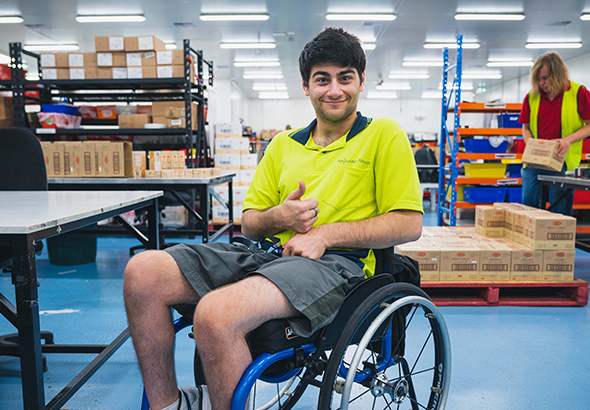
Scope welcomes 78 new residents and 227 staff transferring from Uniting Vic.Tas. to Scope Supported Independent Living
In November 2021, a review of disability accommodation services by Uniting Vic.Tas. showed larger disability providers like Scope were better placed to deliver SIL services in this region. With a shared vision to achieve the best possible outcomes for residents, their families, and the staff who support them, Uniting Vic.Tas. and Scope worked closely in support of a seamless transition to Scope.

Acquisition of Disability Services Australia
Following a period of voluntary administration, Scope was selected as the preferred new owner of Disability Services Australia, supporting more than 1,500 customers and employing more than 1,600 people in key regions of New South Wales, including metropolitan Sydney. The coming together of Scope and Disability Services Australia strengthens Scope’s position as one of the largest national providers of disability services.
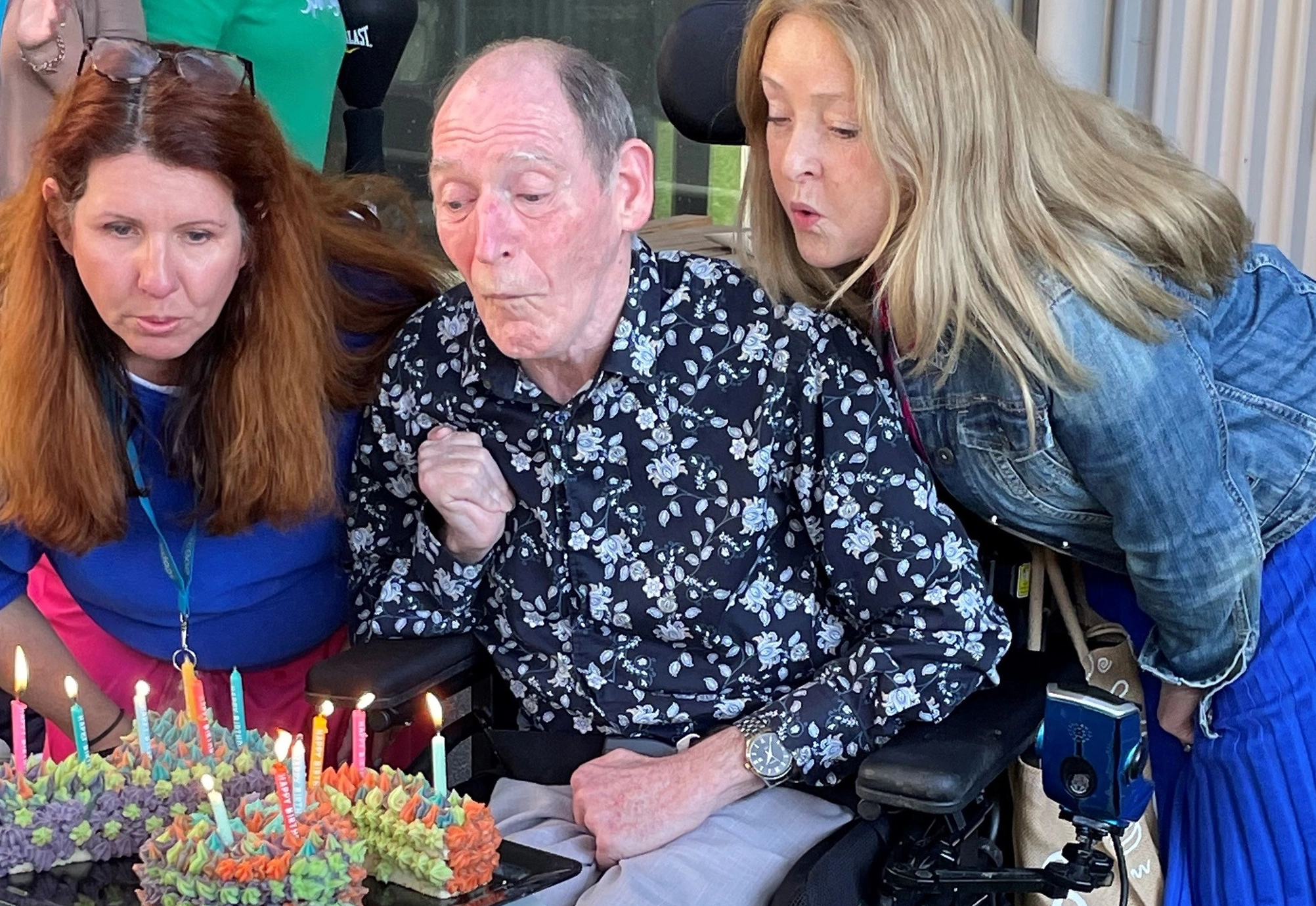
Celebrating 75 Years of Scope - Colours of Scope
In August 2023, we celebrated 75 years of supporting people with disability to belong and thrive. To help celebrate our birthday, SIL homes, day programs and offices across Victoria and New South Wales participated in 'Colours of Scope' parties.
Reflect Reconciliation Action Plan
A step to reconciliation
*Please note this content contains records, images, voices or names of deceased First Nations’ people in photographs, film, audio recordings or print materials.
In December 2023, Scope unveiled its inaugural Reflect Reconciliation Action Plan (RAP), which we have since been taking steps to implement it.
Scope commissioned Greg Muir*, a First Nations artist with a disability, to design the artwork for the Plan. Titled ‘Into Freedom’, Greg’s work showcases themes of institutionalisation, transition and freedom shared between First Nations and disability communities in Australia.
Celebrating and empowering First Nations employees and people with disability to belong, thrive, and live their dreams is central to our vision.
“In its very essence, our RAP is a testament to our vision and values – by embracing reconciliation, we celebrate diversity and we acknowledge the unique contributions of First Nations people to our nation’s culture and heritage,” Kate MacRae, Scope’s CEO said.
Our Reflect Reconciliation Action Plan amplifies this vision and enables us to create culturally-responsive disability supports, allowing our clients to live the lives they choose.
The plan outlines a series of practical steps that Scope is taking to advance reconciliation within our organisation and across our community. It encompasses commitments to recognise and respect the rights and culture of First Nations people, to provide opportunities for cultural learning and understanding, and to create a workplace that is truly inclusive and diverse.
Scope acknowledges the enormous strength and resilience of First Nations people and is dedicated to ensuring that Aboriginal and Torres Strait Islander people with disability feel safe, welcome, and confident in accessing our services.
In celebration of National Reconciliation Action week, employees were encouraged to attend community events and share their experiences.
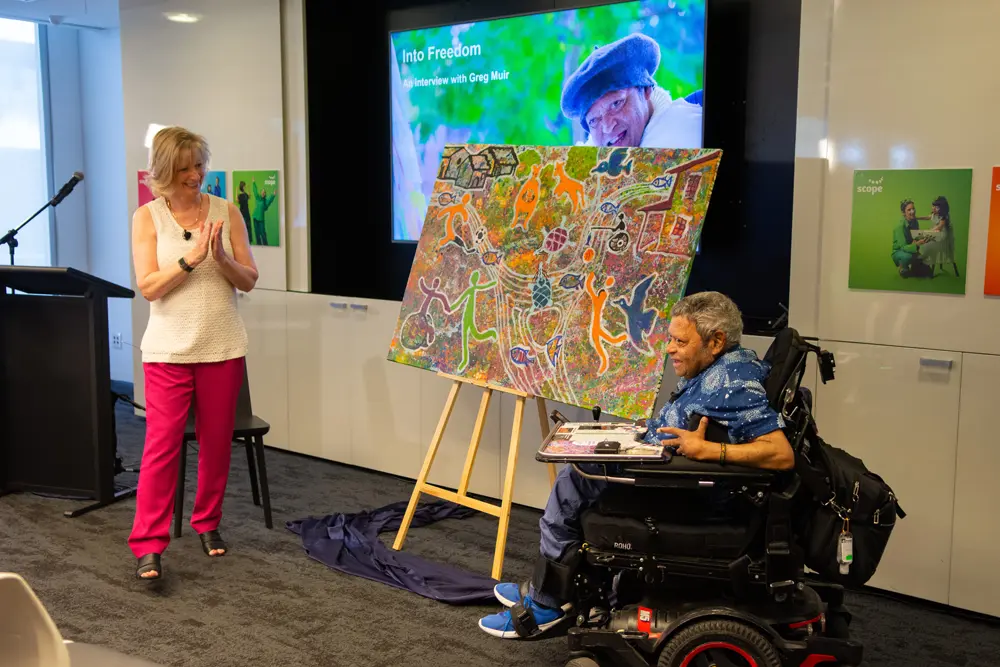
Reflect Reconciliation Action Plan working group member Cassandra attended the Royal Botanic Garden’s Aboriginal Heritage Walk and shared…“with a heartfelt “Womin Djeka” greeting, I embarked on the journey, accompanied by a knowledgeable First Peoples guide with a goal to deepen my understanding of Indigenous culture and the profound connection to Country.”
“As we strolled through the gardens, our guide shared captivating narratives about native plants, offering insights into their significance in Aboriginal communities,” Cassandra said.
“We learned about traditional plant uses, customs, and the enduring bond between Indigenous people and their land.”
The experience shed light on the ongoing efforts to safeguard Indigenous plant knowledge, despite the historical challenges posed by colonisation. It underscored the importance of honouring and integrating Indigenous perspectives into land practices across Australia.
Dancing, drag queens and diversity: Pride Month at Scope
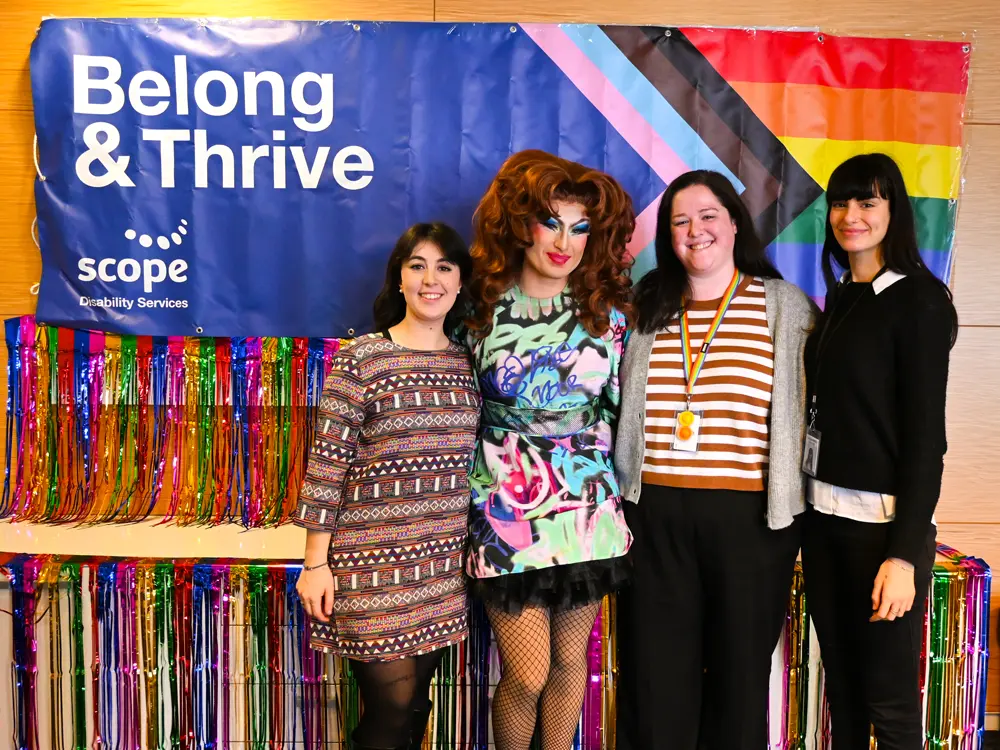
In June, Scope celebrated Pride Month with a number of dynamic, engaging events held at its Hawthorn and Kingsgrove offices. The festivities aimed to celebrate diversity within the organisation, spotlight Scope’s Pride Network, and promote inclusivity for queer staff and the broader community.
Keynote speakers from Scope’s Pride Network, as well as Debra Benger Chief Quality and Safeguarding Officer, and Shannah Baichoo, Executive General Manager Community Home Living, discussed Scope’s commitment to understanding and supporting diversity. They also shared personal, insightful perspectives on the intersection of disability and queerness.
Attendees learned about the upcoming installation of new Pride Boards at Hawthorn and Kingsgrove for important Pride Network news updates, and the introduction of ‘You’re Safe with Me’ pins. The Pride Network also provided resources to support conversations around pronouns, gender and sexuality with people with disability.
The highlight of the celebrations was the captivating performances by two fabulous drag queens – Roxie Boat in Victoria, and Carmen Geddit in NSW – followed by a few rounds of drag bingo.
“Pride Month is not just a celebration but a reaffirmation of Scope’s values – it’s about making sure we work in an environment where everyone can belong and thrive,” said Laura Steel from Scope’s Pride Network.
“We want to cultivate an inclusive workplace culture where diversity is embraced at every level.”
Scope’s Pride Network will continue to raise awareness of the intersection between disability and queerness, and contribute to a positive, inclusive workplace.
Fundraising at Scope
Scope uses donations and financial support to deliver innovative programs, undertake valuable research and ensure services are well supported.
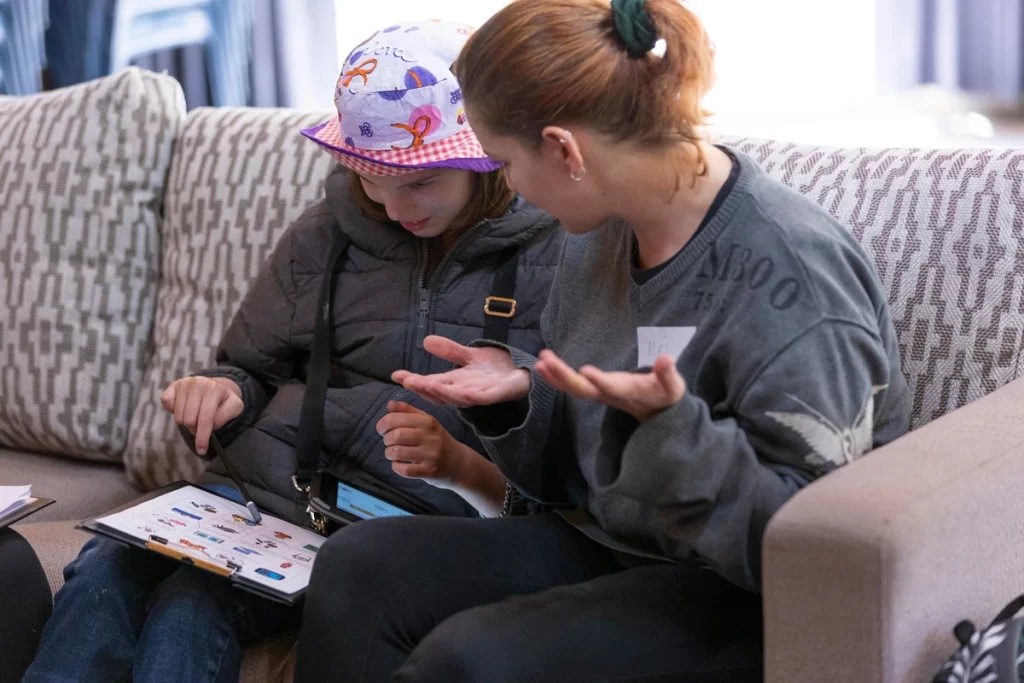
Generous support ignites the power to communicate
Thanks to support from donors and philanthropic trusts, 16 children and their families have improved their communication skills and confidence through the use of Augmentative and Alternative Communication (AAC) systems.
Effective communication is an essential social skill for anyone wanting to express their needs, feelings and emotions. Over the past two years, Scope’s Communication Camp (known as CommuniCamp) has played a vital role in helping children living with a communication disability to become more skilled in the use of AAC systems such as speech generating devices, communication books and sign language.
This year’s camp was held in the Glenmore region of Victoria and attended by 16 children aged 7-14 years, and their families. They worked with mentors, speech pathologists, an occupational therapist, allied health assistants, and volunteers to participate in a range of activities aimed at building their AAC skills and communication confidence.
Outcomes from the camp included:
- Improved self-confidence in using AAC devices for an individual with a disability and/or for family members.
- Increased use of communication devices and aids by attendees.
- Enhanced capacity to communicate.
- Wider vocabulary and sentence development.
- Better parental and caregiver knowledge in supporting the ongoing development of communication skills for their child using AAC.
- Increased and enhanced connections among AAC users and their families promoting greater peer support.
- Positive impression of CommuniCamp for the children and their families.
Scope acknowledges the support of Building Engineering, Australian Communities Foundation, Perpetual Trustees – Estate of late Elizabeth Mae Hughes, and the Estate of the late Hildegard Snaith in making the Communication Camp possible.
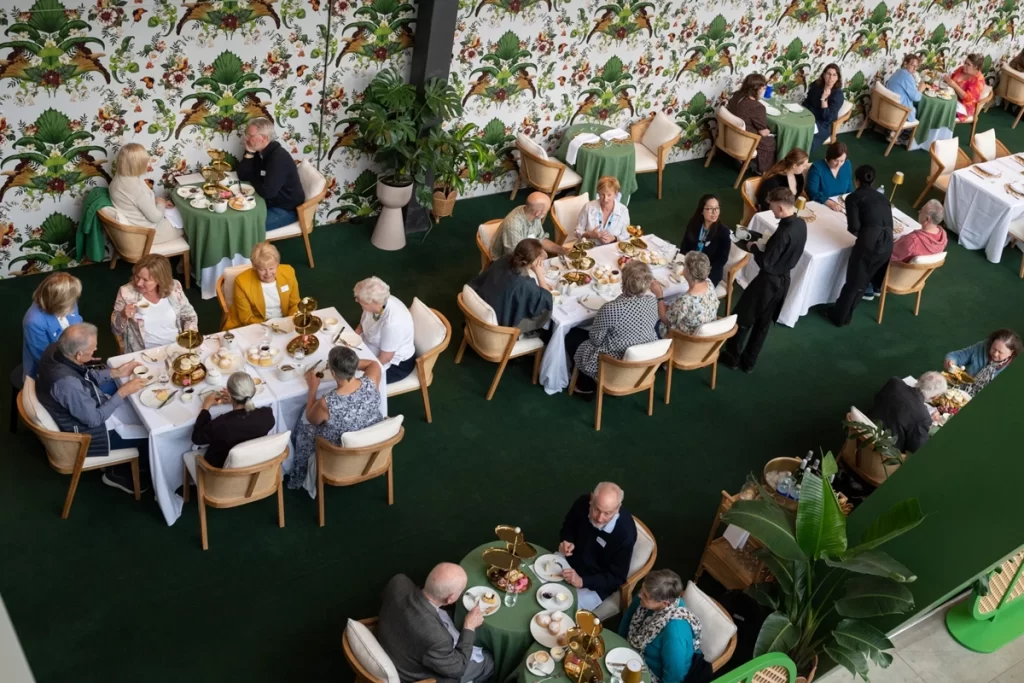
Donors thanked with a unique experience
Scope was delighted to offer some of our long-standing donors a unique and delicious experience when they attended a special High Tea in appreciation of their ongoing support.
Donors are the lifeline of many organisations and, for Scope, this certainly rings true. They entrust their philanthropic gifts to Scope which, in turn, play a crucial role in providing vital funding for projects and activities that are not covered through the NDIS.
In appreciation of the ongoing commitment and generosity of our donors, Scope hosted a special ‘Thank You’ morning tea at Melbourne Museum in April.
The event, the first held for donors since the COVID-19 pandemic in 2020, was attended by more than 25 of our regular supporters, many of whom have been by our side for at least 15 years.
Our CEO, Kate MacRae, thanked donors for their support, outlining some of the ways in which their contributions have been used to make a lasting and meaningful impact, and the difference they, as donors, make to the lives of the people we support.
Attendees enjoyed a high tea followed by a wander through the Titanic Artefact Exhibition, sharing the experience with others who have a similar passion for supporting people with disability to thrive and belong.
